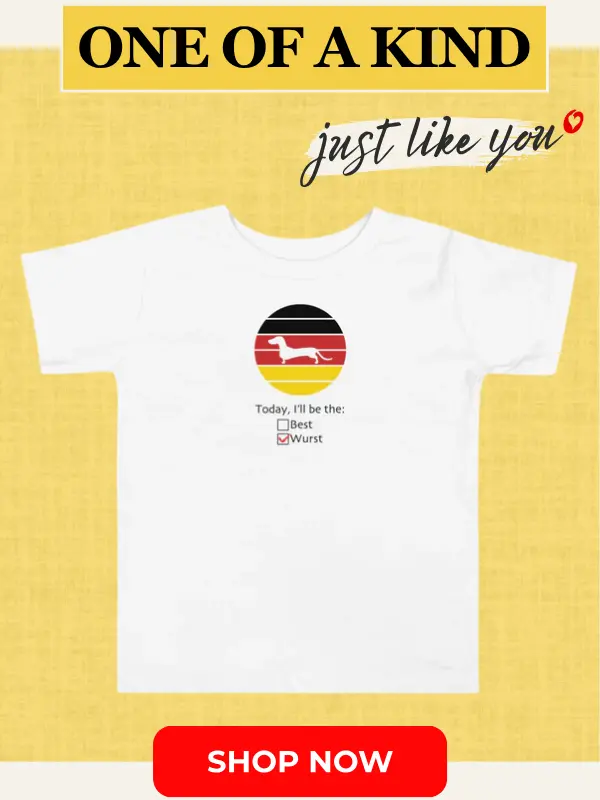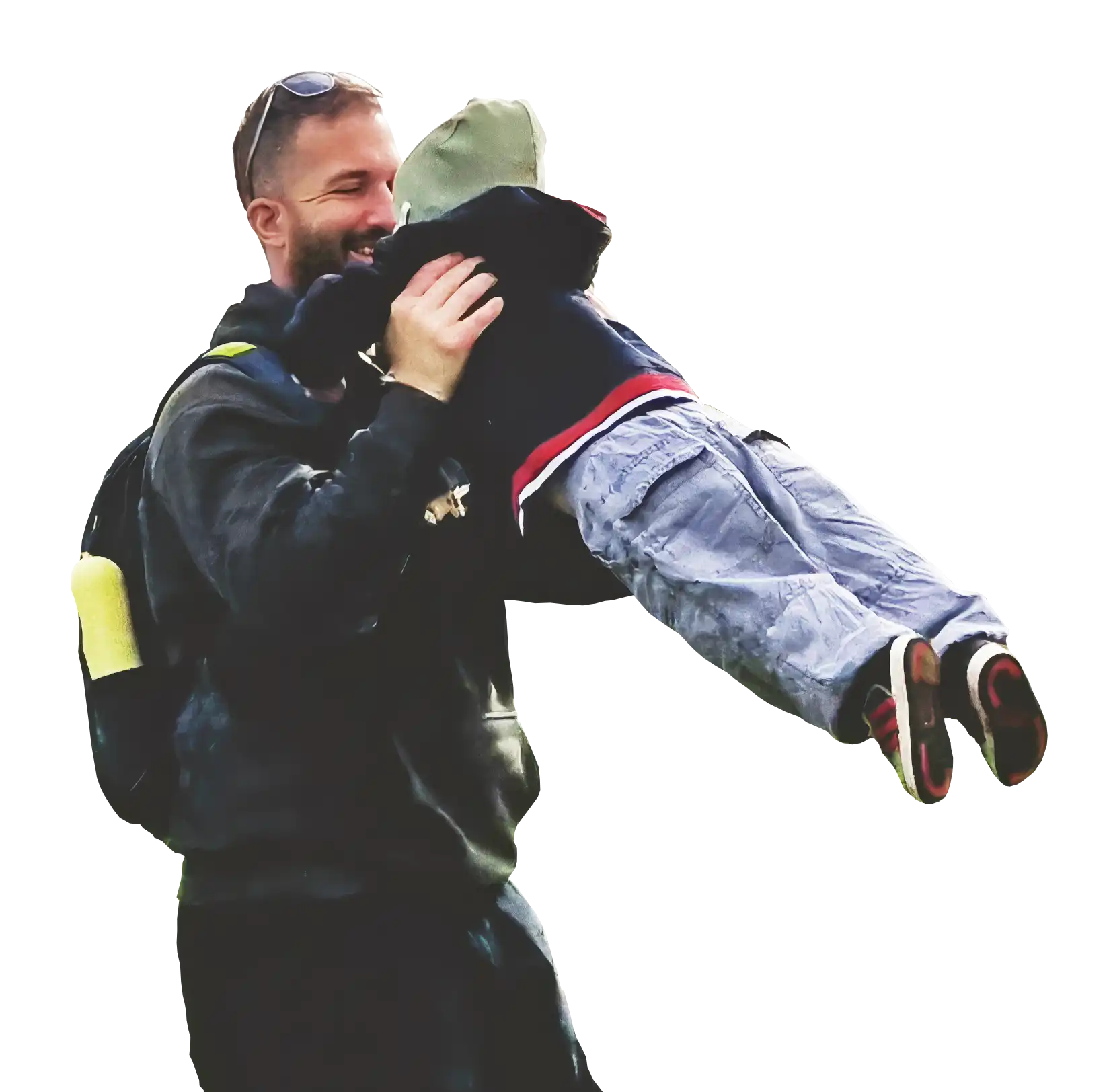Recipe Cards now available in the Just Like Oma Shop!
- Home
- Family Traditions
- Oktoberfest in Germany
The Best Oktoberfest in Germany (and What it Says About German Culture)
By: Eran Fulson / Last Updated: July 28, 2025
If you landed here expecting a beer-soaked listicle, you might be surprised. Sure, I’ll tell you where to go and when to book a table. But this isn’t about which tent has the best roast chicken or where to find the strongest beer.
This is about something deeper: What does Oktoberfest really say about Germany? About the people who live there, the traditions they pass down, and how a loud, chaotic beer festival somehow reflects values like order, identity, and family?
So yes, I’ll show you the "best" Oktoberfests. But the criteria here aren’t crowd size or influencer appeal. They’re cultural.
Let’s tap the keg.
Table of Contents:
What Makes an Oktoberfest "the Best"?
Size is easy to rank. Culture isn’t.
Here’s what I look for:
- Cultural authenticity: Does it still reflect its roots?
- Community participation: Are locals still involved, or is it staged for tourists?
- Preservation of tradition: Are the customs, foods, and music still recognizable?
- Intergenerational appeal: Can families go together, and do they?
By these standards, Munich isn’t automatically the winner. It’s the biggest, yes. But the most German? That depends on what kind of Germany you’re looking for.
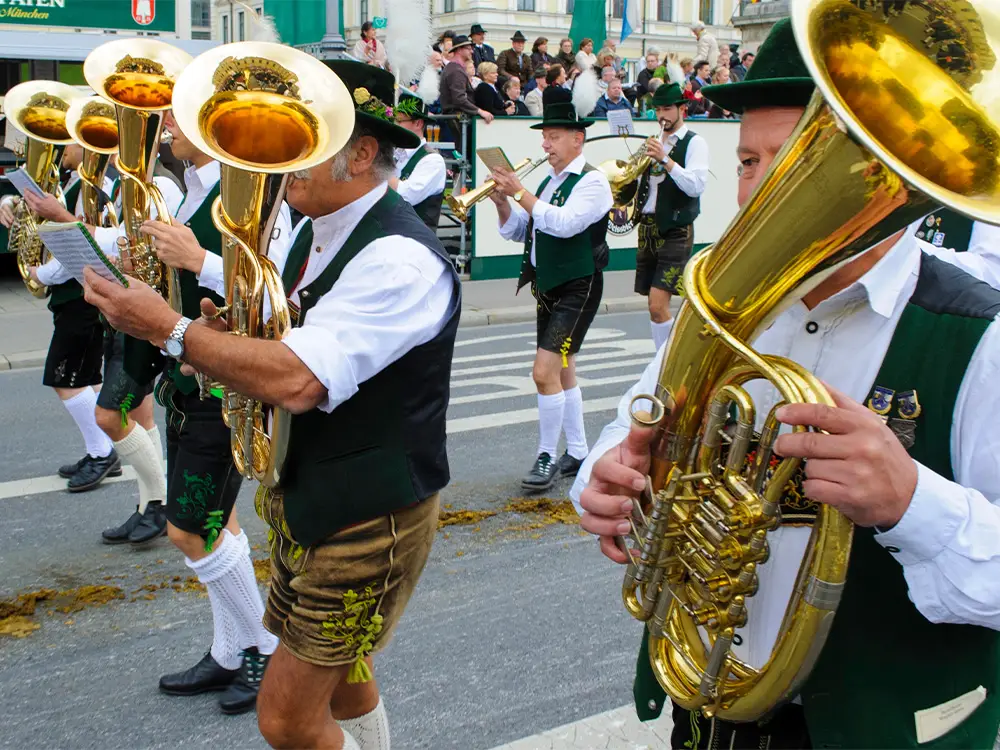 A good Oktoberfest doesn’t just serve beer, it marches to the beat of its own brass band.
A good Oktoberfest doesn’t just serve beer, it marches to the beat of its own brass band.Best Oktoberfests in Germany (That Locals Actually Attend)
Munich – The Iconic Chaos
It’s the original. It’s massive. It’s both deeply traditional and wildly commercial. Locals still go, making up about 70% of attendees, especially during the quieter early days. Munich's Oktoberfest is Bavarian pride on full display: regional dialects, brass bands, meticulous tent structure under all that beer foam.
Want a taste of the "real" experience? Try the Augustiner-Festhalle. It's family-friendly, locally loved, and a reminder that even in the biggest beer tent in the world, tradition still gets a seat at the table.
Stuttgart – Cannstatter Volksfest
If Munich is the celebrity, Stuttgart is the local hero. Still huge, but less chaotic. It’s a Swabian celebration, heavy on hearty food, regional music, and actual local families.
Looking for authenticity without the crowds? This is your best bet.
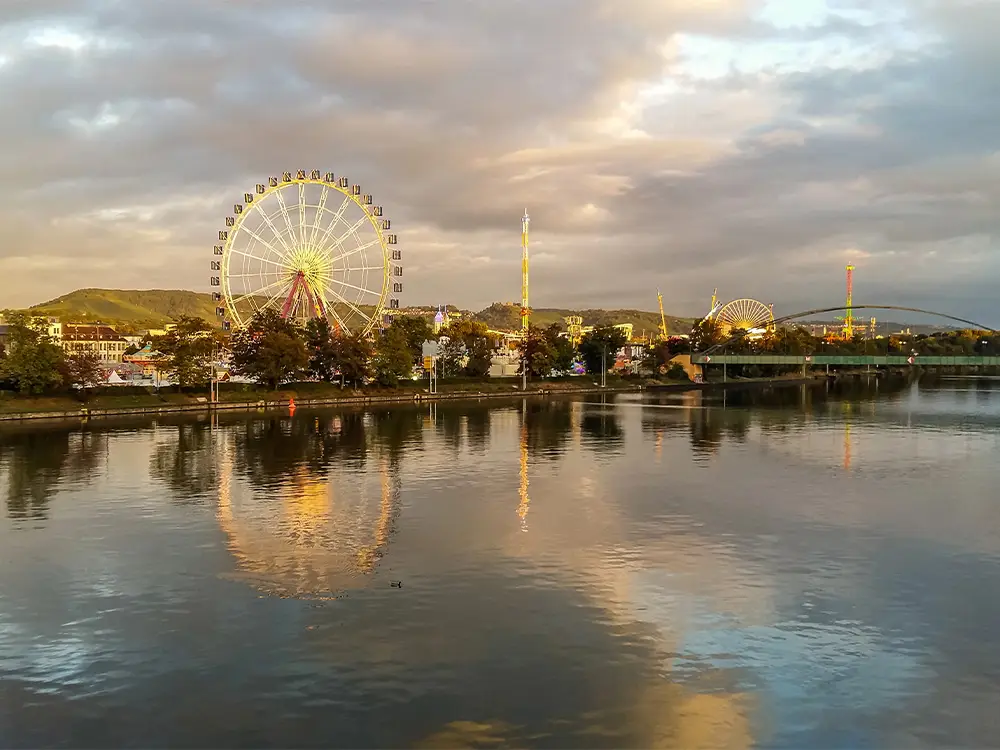 Stuttgart’s Cannstatter Volksfest: less tourist chaos, same giant Ferris wheel.
Stuttgart’s Cannstatter Volksfest: less tourist chaos, same giant Ferris wheel.Bremen – Freimarkt
The oldest fair in Germany. Yes, older than Munich’s Oktoberfest. Here, you’ll find maritime flair, processions, and fairground energy. Beer plays second fiddle to community fun.
Proof that Oktoberfest isn’t just a southern thing.
Erfurt – Oktoberfest with Thuringian Flavor
Small, local, and loaded with bratwurst. Folk music, family programming, and a down-to-earth vibe that doesn’t try to impress tourists. Which is exactly why it’s worth your time.
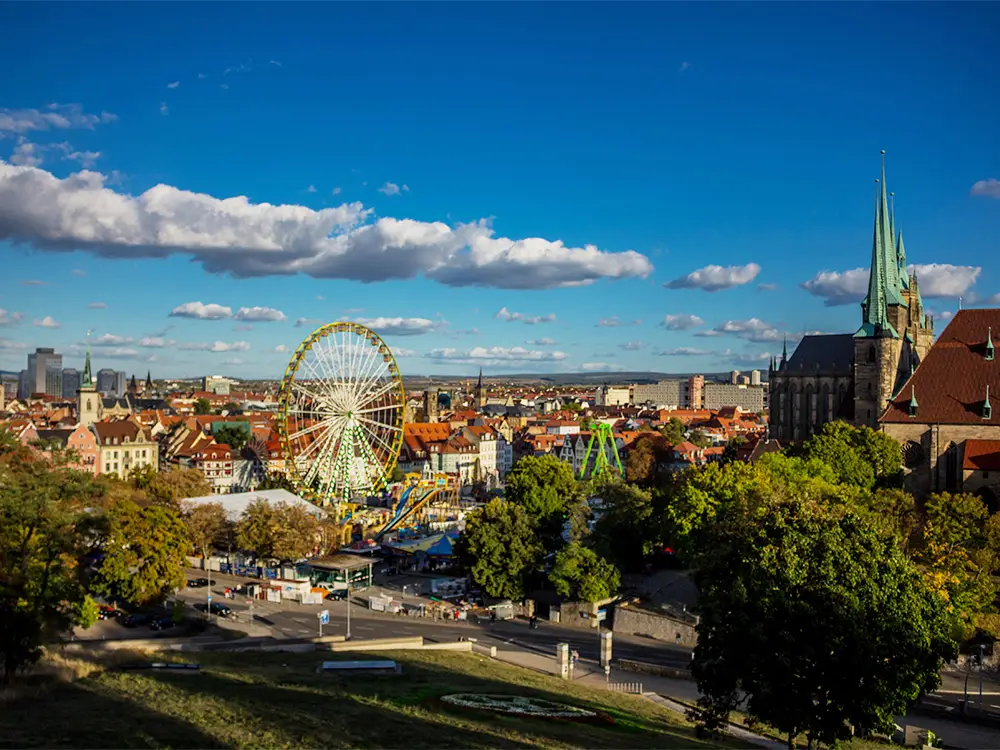 Erfurt’s Oktoberfest: where medieval spires meet modern fairground thrills
Erfurt’s Oktoberfest: where medieval spires meet modern fairground thrillsSmall-Town Fests – Where Tradition Lives
These don’t show up on influencer lists. But they’re the purest form of Oktoberfest: long tables, familiar faces, no filter. If you want to see tradition lived instead of performed, this is where to go.
Looking for authentic Oktoberfest experiences in Germany? Skip the megatents and go rural.
Honorable Mentions
- Hannover Oktoberfest: One of the largest in northern Germany, with a strong family focus
- Rosenheim Herbstfest: Deep-rooted Bavarian fest with strong local ties and a relaxed atmosphere
In short: Oktoberfest isn’t a monolith. Each region tells its own story.
The Cultural DNA of Oktoberfest
- Ordnung + Escapism
Only Germans could create a festival where table reservations are timed to the minute, but dancing on benches is encouraged. It's order and excess, side by side.
Fun fact: Many tents assign seating by the hour. Punctuality and festivity coexist here.
- Local Identity Matters
Each region puts its own stamp on the festival. You won’t find the same beer, music, or costumes from town to town. It’s not about uniformity. It’s about pride in place.
- Intergenerational by Design
You’ll see toddlers and grandparents at the same table. Heritage is lived, not just remembered. The festivals are structured to welcome everyone, from stroller to stein.
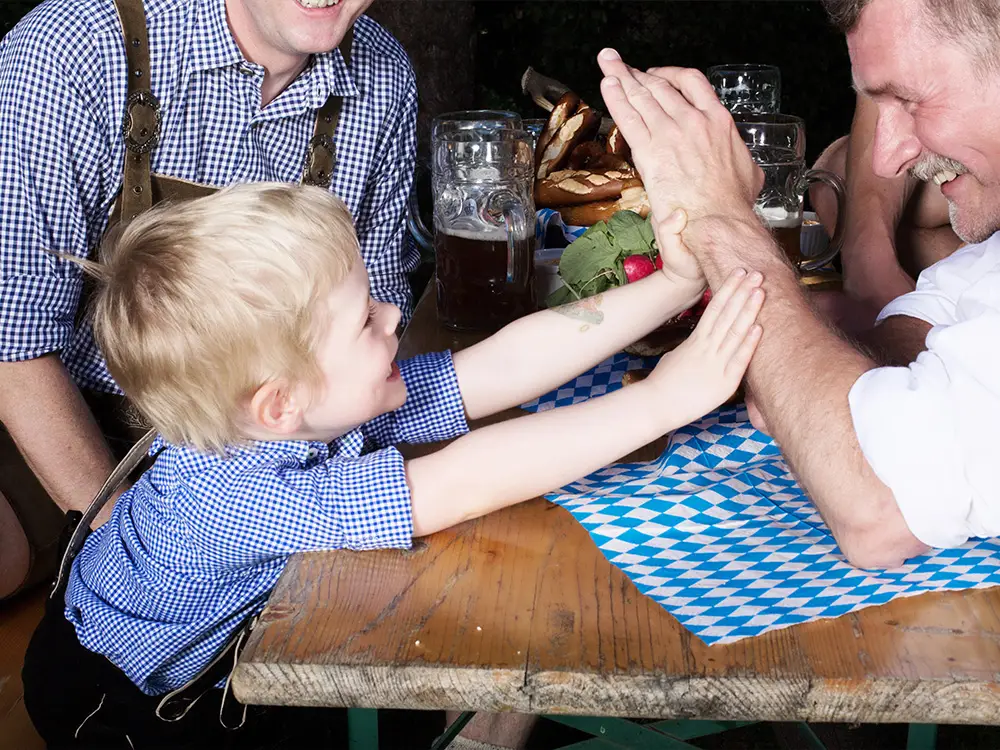 Oktoberfest isn’t just about beer. It’s where traditions are passed down (sometimes over pretzels and a friendly arm wrestle).
Oktoberfest isn’t just about beer. It’s where traditions are passed down (sometimes over pretzels and a friendly arm wrestle).How to Bring Oktoberfest Home
You don’t need lederhosen or a Bavarian zip code. Celebrate in your own way:
- Craft Bavarian paper hats with the kids
- Grill bratwurst on the BBQ alongside Oktoberfest finger-food
- Put on a playlist of polka and German pop
- Host a themed party playdate and invite your kids' friends to experience a bit of your heritage
The format doesn’t matter. The shared experience does.
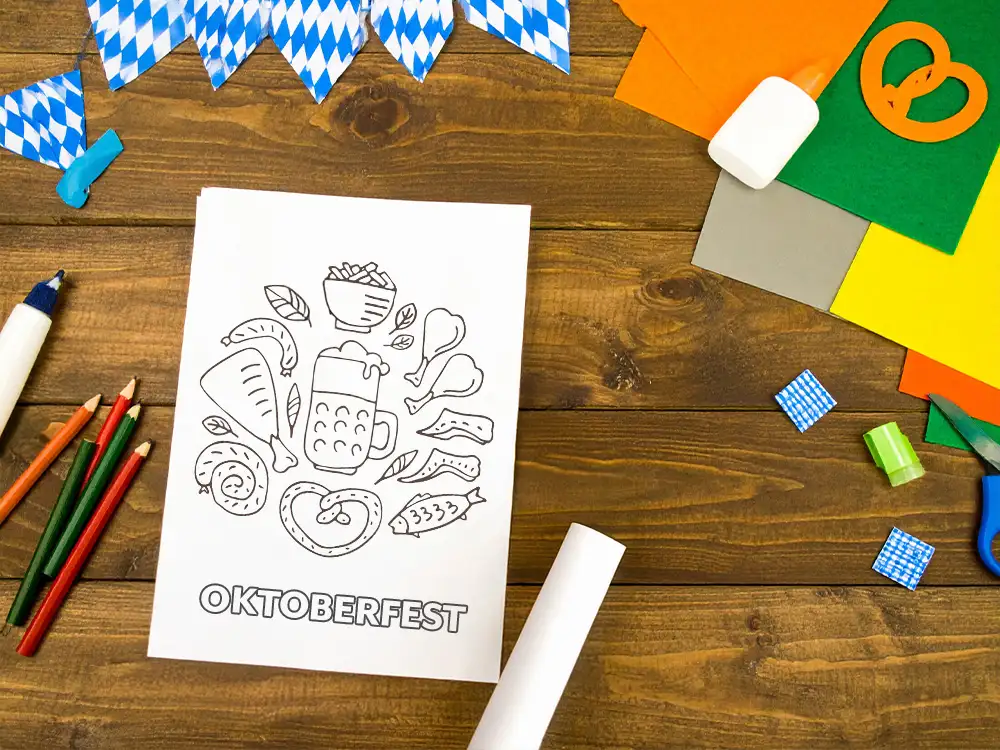 Not every Oktoberfest activity has to involve beer.
Not every Oktoberfest activity has to involve beer.Traditional Oktoberfest Recipes
Oktoberfest is more than toasting everyone in sight, food reigns supreme. The best way to tap into this cultural niche, make it like Oma:
- Roast chicken, potato salad, apple cake. It's the real stuff served at fests
- Or, try some German-American fusion recipes like my Smoky Obatzda, and begin introducing cultural flavors in little bites
Why roast chicken? It’s been a staple since 1881 when the first poultry roasters set up shop at Munich’s fest. Bratwurst is great, but Hendl is king.
Searching for Oktoberfest food ideas? Start with what your Oma made, or what she would've done.
Learn the Language Bits
- Cheers = "Prost!"
- It’s tapped = "O’zapft is!"
- Dirndl = traditional dress for women
- Lederhosen = leather shorts worn by men
- Maß = one-liter beer mug
- Wiesn = nickname for the Oktoberfest grounds in Munich
Oktoberfest in Germany: Tips for First-Time Visitors
This isn't a travel blog, but if you do go, here’s what to know so you show up as a respectful participant, not a tourist cliché.
- Don’t show up without a reservation in Munich. Especially on weekends.
- Learn the vibe: traditional tents vs party zones
- Dress the part: renting a Dirndl or Lederhosen is normal. Or buy your very own Dirndl and have Oktoberfest attire ready whenever the mood strikes ($40USD off using the code OMA40 at checkout)
- Respect local customs. This isn’t spring break.
Traveling with kids? Stuttgart and Erfurt offer a more laid-back, family-friendly experience.
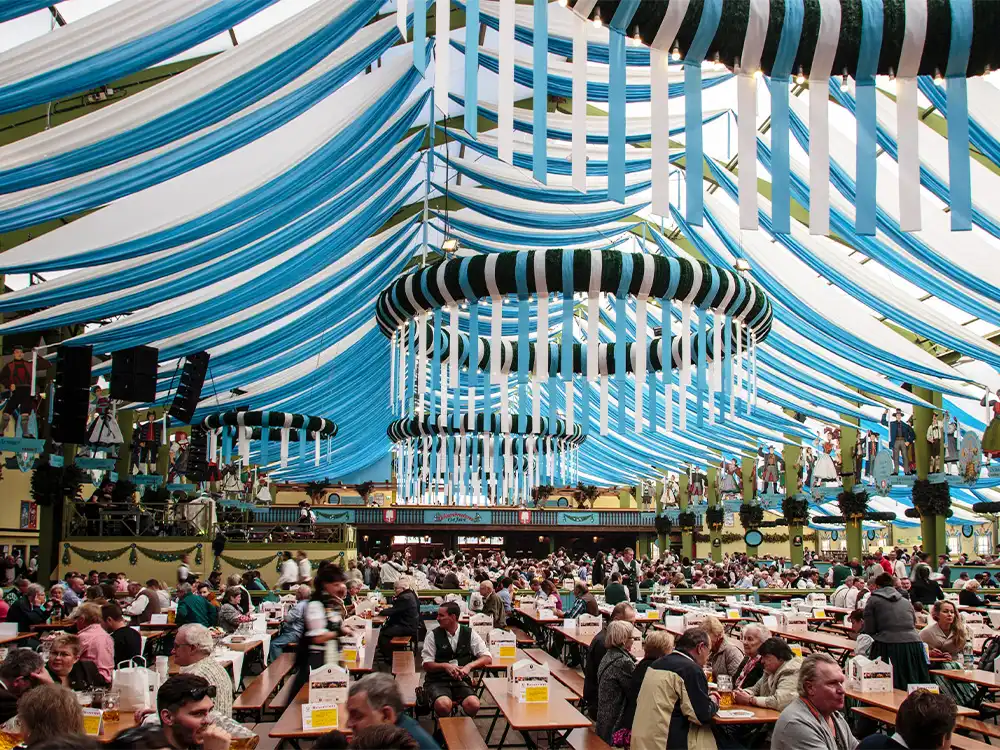 First-timers, pace yourselves.
First-timers, pace yourselves.Cultural Takeaways (Even If You Never Attend)
Oktoberfest isn’t just a beer festival. It’s a living example of how traditions (even loud, crowded ones) can preserve values like togetherness, pride in your roots, and family belonging.
Whether you’re attending a backyard version in Ohio, a preschool polka party in Manitoba, or simply teaching your kids why you won't stop saying "Prost", you’re keeping the culture going.
And that’s worth celebrating.
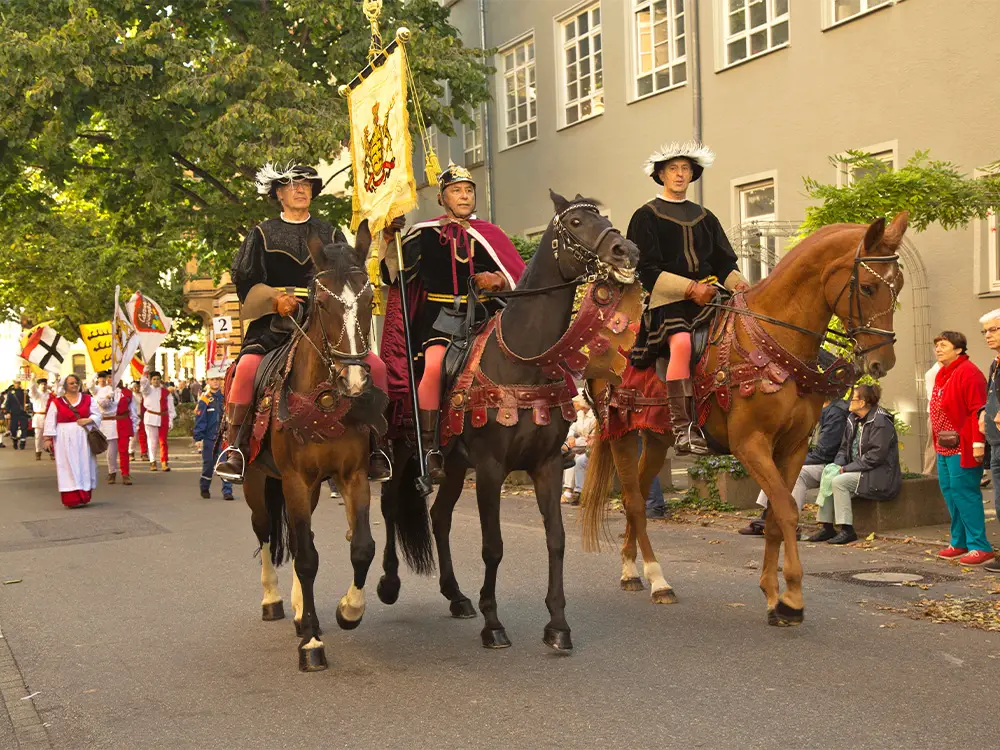 Even if you skip the beer, Oktoberfest still delivers: horses and history on parade.
Even if you skip the beer, Oktoberfest still delivers: horses and history on parade.Oktoberfest FAQ
Why did Oktoberfest begin with a horse race, and why does that matter?
Why did Oktoberfest begin with a horse race, and why does that matter?
In 1810, the first Oktoberfest was a public horse race held in honor of Crown Prince Ludwig’s wedding to Princess Therese. It drew over 40,000 spectators and revived a long-standing Bavarian equestrian tradition called the Scharlachrennen.
Knowing that helps us see how original Oktoberfest values community over consumption, just as much as we might honor a harvest ceremony or midsummer gathering today.
What’s the deal with tent reservations and seating, why care about that tradition?
What’s the deal with tent reservations and seating, why care about that tradition?
Though entry to Oktoberfest tents is free, only about 25% of tables are reserved, and only for eating guests who pre-purchase vouchers. Around 4–5 pm, people without reservations sitting at reserved tables are asked to move.
This system reflects a cultural principle: Ordnung meets Gemütlichkeit. It balances structure and spontaneity, which gives locals priority, yet still allowing visitors to join in respectfully.
Do you really have to wear a Dirndl or Lederhosen?
Do you really have to wear a Dirndl or Lederhosen?
Technically, no. There’s no official dress code and jeans and a t‑shirt are allowed. But unofficially? Wearing Dirndl or Lederhosen is a cultural signifier.
It's estimated over 75% of attendees wear Tracht (traditional clothes) and it signals respect for heritage, supports local crafts, and visually connects people across generations.
A Personal Note
I didn’t grow up celebrating Oktoberfest. It wasn’t a thing in our house, and frankly, it never came up.
For most of my life, Oktoberfest lived in the same mental folder as Carnival or Mardi Gras. It was loud, boozy, and not particularly relevant. But parenting has a way of shifting your lens.
Now, raising German heritage kids outside Germany, I’m more curious than ever about the traditions that were never passed down, and how I can pass them forward.
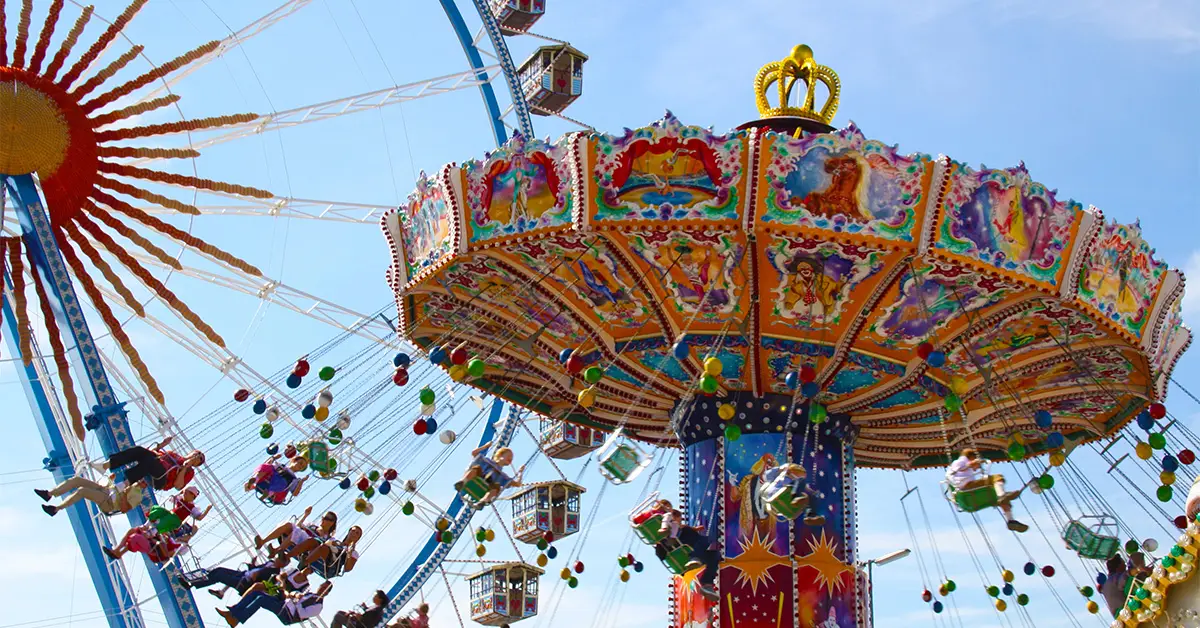 Sometimes Oktoberfest tradition looks like cotton candy and centrifugal force.
Sometimes Oktoberfest tradition looks like cotton candy and centrifugal force.When I started digging into Oktoberfest, I found layers I hadn’t expected. Sure, it’s commercial. Sure, there’s a lot of beer.
But scratch the surface, and you see something much older. A celebration of local identity, of community, of showing up at long tables with your kids, your neighbors, and a band that’s been playing the same folk songs for 40 years.
Turns out, Oktoberfest is about culture. And maybe that means it belongs in our lives after all.
Even from my backyard in Wales.

Eran Fulson
Traveler • Writer • Explorer of Historic Streets & Hidden Gems
Eran is a first-generation Canadian with German roots now living in Wales. For over 15 years, he’s traveled across North America and Europe, road-tripping through cities, coastlines, and mountain landscapes. He combines his multicultural background with a keen attention to detail to bring Germany to life for curious travelers. Eran’s writing is rooted in firsthand experience helping you uncover Germany's hidden gems, local traditions, and meaningful cultural experiences beyond the typical tourist trail.



